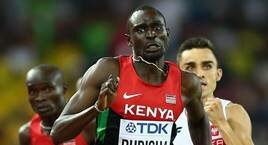I. Introduction
Sports and education are two domains that profoundly influence the lives of our children. They shape not only their physical well-being but also their mental and social development. Yet, for too long, gender disparities have marred these fields, preventing girls from realizing their full potential. In this article, we explore the vital importance of empowering girls in sports and education and discuss how we can collectively break down the barriers that stand in their way. This topic is quite relevant, since gender inequality affects not only the social component of society, but also the development of economic relations. You can find out what economic and financial constraints gender inequality causes at the micro and macro levels by ordering a paper on this topic from the economics essay writer via https://essays-panda.com/economics-essay.
II. The Benefits of Girls in Sports
Participation in sports is about more than just physical activity; it's about nurturing the whole person. For girls, engaging in sports provides a myriad of benefits:
- Physical Well-being: Regular exercise through sports promotes a healthy lifestyle. It builds strength, endurance, and agility, all of which are crucial for overall well-being.
- Mental Health: Sports instill discipline, resilience, and the ability to handle stress. These are essential life skills that transcend the playing field.
- Social Skills: Through teamwork, communication, and sportsmanship, girls learn how to interact with others effectively.
Statistics and research findings back these claims. According to the Women's Sports Foundation, girls who participate in sports are more likely to have higher self-esteem and a more positive body image. Additionally, research by the Women's Sports Foundation also shows that girls who play sports tend to perform better academically.
III. Challenges Faced by Girls in Sports and Education
Despite the many benefits, girls continue to face gender-related challenges in sports and education:
- Unequal Opportunities: Girls often have fewer opportunities to participate in sports programs, with fewer resources and less funding.
- Gender Stereotypes: Stereotypes about what is considered "appropriate" for girls can limit their choices and self-perception.
- Lack of Role Models: The absence of female role models in sports and education can make it harder for girls to envision their own success.
These challenges can negatively impact girls' self-esteem and confidence, hindering their progress and limiting their aspirations.
IV. Breaking Stereotypes and Overcoming Barriers
Breaking stereotypes and overcoming barriers is crucial to empowering girls in sports and education. Here are some strategies:
- Challenge Stereotypes: Encourage girls to try different sports and interests, breaking free from limiting stereotypes.
- Supportive Parents: Parents play a critical role in challenging stereotypes. Encourage open conversations and support your child's interests, whether they align with traditional gender norms or not.
- Inclusive Classrooms: Teachers can create inclusive classrooms where all students feel valued, regardless of their gender.
- Lead by Example: Coaches should lead by example, treating all athletes equally and emphasizing sportsmanship and teamwork.
V. Role of Parents
Parents are instrumental in empowering their daughters. Here's how:
- Encourage Exploration: Encourage your child to explore various sports and activities to find their interests and passions.
- Open Communication: Foster an environment where your child feels comfortable discussing their experiences, challenges, and aspirations.
- Lead by Example: Be a role model for gender equality and open-mindedness.
VI. Role of Teachers
Educators also play a pivotal role in promoting gender equality in schools:
- Inclusive Education: Create a classroom that welcomes and respects all students, regardless of their gender.
- Equal Opportunities: Ensure that all students have equal access to sports and educational opportunities.
- Education on Gender Equality: Educate students about the importance of gender equality, both in sports and education.
VII. Role of Coaches
Coaches have a significant impact on girls' sports experiences:
- Positive Reinforcement: Coaches can motivate and encourage girls to push their boundaries and develop their skills.
- Mentorship: Coaches can act as mentors, providing guidance and support beyond the playing field.
- Inclusive Team Culture: Foster an inclusive team culture where all athletes are valued and respected.
VIII. Encouraging Girls to Pursue Their Passions
Empowering girls to follow their passions is crucial. Here's how:
- Set Goals: Help girls set specific, achievable goals in sports and education.
- Celebrate Achievements: Celebrate and acknowledge their achievements, no matter how small.
- Showcase Success Stories: Share stories of girls who have excelled in various sports and educational pursuits to inspire others.
IX. Resources and Support Networks
Finding support networks is essential. Here are some resources:
- Organizations: Organizations like the Women's Sports Foundation and Girls on the Run provide resources and support for girls in sports.
- Websites: Websites such as Girls in the Game and Women's Sports Net offer valuable information and inspiration.
- Local Clubs: Seek local clubs and organizations that empower girls in sports and education.
X. Conclusion
Empowering girls in sports and education is not just a matter of equity; it's an investment in the future. By providing girls with equal opportunities, we allow them to reach their full potential and contribute to a more inclusive and diverse society. We encourage all parents, teachers, and coaches to take action and be advocates for gender equality. Let's work together to break down the barriers and support the dreams of our daughters.
In conclusion, let's empower the girls of today to become the leaders of tomorrow. By working together, we can create a world where every girl has the opportunity to excel in sports and education, regardless of gender.

